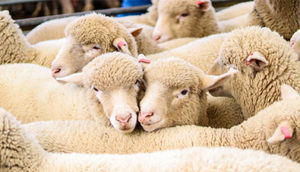Read the latest information on
Foot-and-mouth disease
 Though we had a nasty start to the season due to the effects of prolonged drought exacerbating the fire season, predictions for a hot and dry summer didn’t entirely pan out, as large parts of Australia recorded significant rainfall over the past few months.
Though we had a nasty start to the season due to the effects of prolonged drought exacerbating the fire season, predictions for a hot and dry summer didn’t entirely pan out, as large parts of Australia recorded significant rainfall over the past few months.
With rainfall comes insects and parasites, and Animal Health Australia is reminding livestock owners to remain vigilant as we approach winter, especially since we have been enjoying warmer weather right through to late April.
“Conditions are right in many regions for insect populations to ramp up, which is reportedly already happening with flies across Australia’s central regions and brings a host of issues for livestock owners,” said Dr Simon Humphrys, Executive Manager for Biosecurity and Product Integrity.
“Pasture growth is always a blessing, however it can drastically increase survivability for internal and external parasites in paddocks. That means greater monitoring to ensure the health of animals.”
Conditions such as footrot are most prevalent in muddy conditions. Others such as bovine ephemeral fever or three-day sickness, are spread by biting insects. Both tend to flare up in warmer and wetter conditions, like we’ve experienced through autumn 2020.
“This is especially the case in the northern half of the country, where winter comes a little later and is less severe,” say Dr Humphrys.
“Parasite control is another thing to consider, as the seasonal conditions have meant there are much higher risks of worms and flystrike in some areas, while in others there seems to be a window to get on top of your parasite management strategy.”
Tools for assessing worm egg counts, monitoring the effectiveness of drenches, and selecting both chemical products and management strategies for flystrike and lice are available to sheep producers nationwide through ParaBoss.
“Of course, this is a big country and even within a single state conditions can vary wildly,” Dr Humphrys explained.
“It’s always best, wherever possible, to get local advice from your vet, local producer groups, and district offices of your state and territory department of agriculture.”
Most importantly, if your livestock are suffering from a condition which is unusual or leaves you scratching your head, report it to your local vet, to the state or territory department, or by calling the EAD Watch Hotline 1800 675 888.
“If there’s one thing we can all appreciate given the current coronavirus situation, it’s the value in early identification, reporting and management of a potential disease or pest scenario,” Dr Humphrys concluded.
Find out more about managing diseases and pests through your production practices at Farm Biosecurity.